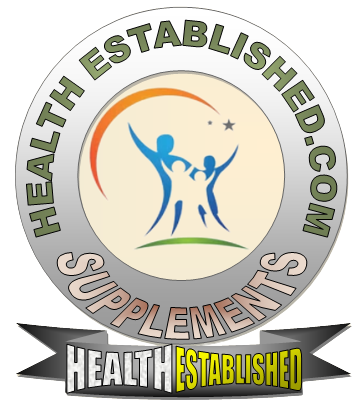How can I improve my digestive health with dietary changes?
Boost digestive health with simple dietary changes! Learn how to improve digestion naturally and feel better every day.

Introduction: Understanding Digestive Health
Understanding Digestive Health
Digestive health is a crucial aspect of overall well-being, and it encompasses the efficient breakdown, absorption, and elimination of food. The digestive system is a complex network involving various organs such as the stomach, liver, pancreas, and intestines working in harmony to process nutrients and remove waste. When this intricate system malfunctions or becomes imbalanced, it can lead to a range of discomforts such as bloating, gas, indigestion, or more severe conditions like irritable bowel syndrome or inflammatory bowel disease.
Moreover, emerging research suggests that maintaining a healthy gut microbiome – the community of beneficial bacteria in our digestive tracts – is essential for not only digestion but also supporting immune function and even influencing mental health. Hence, understanding digestive health goes beyond just digestion; it impacts multiple facets of our physical and mental well-being. Furthermore, an individual's lifestyle factors like stress levels and dietary choices have been found to significantly influence their digestive health. Therefore gaining insights into how these factors affect our gut can empower individuals to make informed dietary adjustments for optimal digestive wellness.
Importance of Dietary Changes for Digestive Health
Making dietary changes is crucial for maintaining optimal digestive health. Our digestive system functions best when fueled with a balanced and varied diet rich in fiber, fruits, vegetables, and whole grains. A healthy gut requires the right balance of beneficial bacteria, and consuming fermented foods like yogurt, kefir, and sauerkraut can help achieve this. Additionally, reducing intake of processed foods high in sugar and unhealthy fats can alleviate stress on the digestive system.
Furthermore, incorporating probiotic-rich foods or supplements into your diet can aid in restoring the balance of healthy gut bacteria. It’s important to note that personalized dietary adjustments may be necessary as individual responses to certain foods vary. By being mindful of our dietary choices and making conscious efforts to include nourishing options, we can support the overall well-being of our digestive system.
Key Foods to Improve Digestive Health
When it comes to improving digestive health through dietary changes, certain key foods can make a significant impact. First and foremost, incorporating high-fiber foods such as whole grains, legumes, and fresh fruits and vegetables can promote healthy digestion by aiding in regular bowel movements and preventing constipation. Additionally, including fermented foods like yogurt, kefir, and sauerkraut can introduce beneficial probiotics into the gut, promoting a healthy balance of bacteria and helping to alleviate digestive issues.
Moreover, embracing the power of ginger and peppermint can provide relief from symptoms such as bloating and indigestion. These natural remedies have been used for centuries for their soothing effects on the digestive system. Incorporating these key foods into your diet not only supports optimal digestive function but also offers a wide array of nutrients vital for overall well-being.
Incorporating Probiotics and Prebiotics into Your Diet
Incorporating probiotics and prebiotics into your diet can significantly improve your digestive health. Probiotics, or good bacteria, are found in fermented foods like yogurt, kefir, kimchi, and sauerkraut. These beneficial microorganisms help maintain a healthy balance of gut bacteria, support digestion, and boost the immune system.
On the other hand, prebiotics are non-digestible fibers that act as food for probiotics. They are found in foods like bananas, onions, garlic, leeks, and whole grains. By nourishing the good bacteria in your gut with prebiotics, you can promote a healthy gut environment and improve overall digestive function. Incorporating both probiotics and prebiotics into your diet can foster a diverse and robust microbiome while reducing digestive discomfort such as bloating or irregularity.

Eliminating Trigger Foods for Better Digestion
Eliminating trigger foods can be a game-changer for those looking to improve their digestion. By identifying and removing foods that may cause digestive discomfort, such as bloating, gas, or acid reflux, individuals can experience significant relief and better overall gut health. Often, trigger foods vary from person to person, making it crucial to pay attention to how your body responds after consuming certain foods. With the elimination of these triggers, individuals may notice reduced inflammation in the gut and an improvement in nutrient absorption, leading to increased energy levels and enhanced overall well-being.
Furthermore, eliminating trigger foods can empower individuals to take control of their digestive health. It encourages them to explore alternative food options and experiment with new recipes that not only support better digestion but also provide a wider variety of nutrients and flavors. This dietary shift promotes mindfulness around food choices and fosters a deeper connection with the body's signals and needs. Ultimately, this proactive approach to eliminating trigger foods sets the stage for a more harmonious relationship between food and digestion while paving the way for sustainable long-term health improvements.
Hydration and its Impact on Digestive Health
Maintaining proper hydration is a critical factor in promoting good digestive health. Water plays a vital role in the digestion and absorption of nutrients, as it helps to break down food, transport nutrients, and eliminate waste products. Dehydration can lead to constipation and slow digestion, as the body tries to conserve water by absorbing more liquid from the stool. Furthermore, adequate hydration supports the production of saliva, gastric juices, and mucus in the digestive tract, all of which are essential for smooth digestion.
In addition to water consumption, choosing hydrating foods can also contribute to better digestive health. Fruits like watermelon, oranges, and strawberries have high water content and can aid in keeping the digestive system functioning properly. Cucumbers, celery, and lettuce are vegetables with high water content that can also help maintain hydration levels within the body. By prioritizing both fluid intake and consumption of hydrating foods as part of your dietary changes for improved digestive health; you will set yourself on track toward optimal hydration levels essential for overall well-being.
Conclusion: Taking Steps Towards Better Digestive Health
In conclusion, improving digestive health through dietary changes is a journey that requires commitment and patience. By incorporating more fiber-rich foods, such as fruits, vegetables, and whole grains, into your diet, you can support healthy digestion and prevent issues like constipation. Additionally, being mindful of portion sizes and eating slowly can aid in better digestion by allowing the body to process food more efficiently. It's also important to stay hydrated and limit consumption of processed foods high in sugars and unhealthy fats, which can disrupt gut health.
Furthermore, embracing fermented foods like yogurt, sauerkraut, and kimchi can introduce beneficial probiotics into the gut microbiome, promoting overall digestive wellness. This holistic approach to dietary changes not only supports better digestion but also contributes to improved energy levels, mood regulation, and immune function. Ultimately, prioritizing a well-rounded diet with a diverse range of nutrient-dense foods is key to fostering long-term digestive health. By taking these steps towards dietary improvements for your digestive system today,you are setting yourself up for enhanced overall well-being tomorrow.







